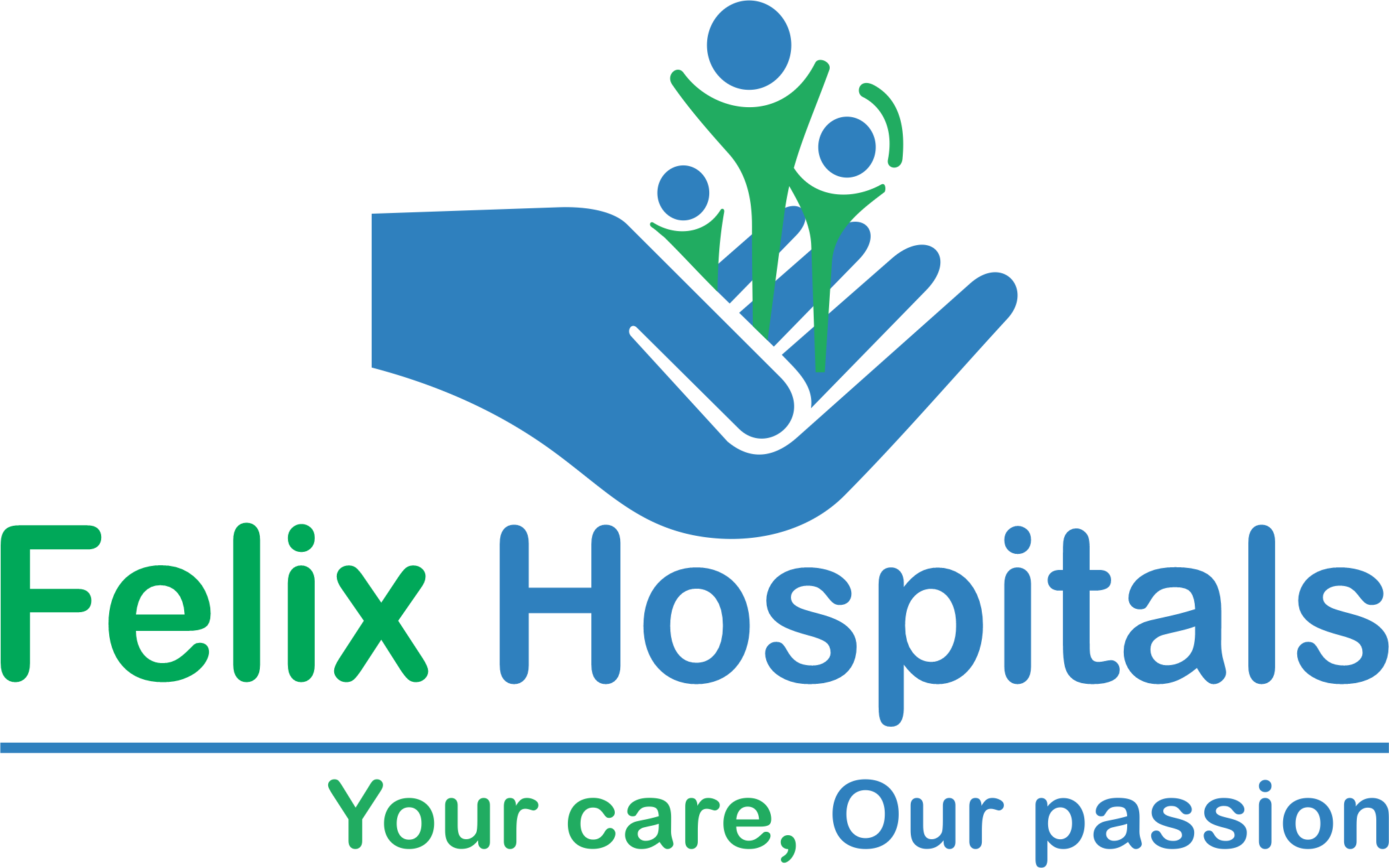The Gastroenterology Center at Felix Hospital specializes in diagnosing, treating and managing conditions related to the digestive system. We have a highly skilled team of gastroenterologists and gastrointestinal surgeons who are trained to manage various problems that affect the stomach, esophagus, liver, small intestine, large intestine, gallbladder, pancreas, and rectum.
Our surgeons, who specialize in the latest surgical techniques and clinical practices, are proficient in addressing a wide range of upper GI symptoms, such as those caused by gastroesophageal reflux disease (GERD), as well as issues related to the gallbladder, pancreas, and small bowel. Additionally, the team is well-equipped to evaluate and treat conditions related to lower GI that includes tumors, trauma, infectious diseases and more. They use advanced techniques such as endoscopy and colonoscopy to examine and treat various gastroenterology diseases and treatments.
For excellence in gastrointestinal care, contact us!
Diagnosis
Accurate diagnosis is the first step in effective treatment. At Felix Hospital, our state-of-the-art Center for Gastroenterology is equipped with advanced diagnostic tools to identify conditions early and offer timely gastroenterology procedures and treatments.
We offer diagnostic procedures, such as:
Endoscopy: It is a technique where gastroenterologists look inside your body with the help of an endoscope. Sometimes, via endoscopy they can also take a tissue sample and perform minor interventions, such as relieve blockages, stop bleeding, and remove tumors.
Upper GI endoscopy: It is the examination of the upper GI tract from the throat down through the stomach and upper small intestine.
Colonoscopy: It is an examination of the lower GI tract.
Endoscopic ultrasound: It is the upper and lower GI endoscopy with an ultrasound wand attached. It helps visualize the biliary system.
Capsule Endoscopy: Non-invasive imaging of the small intestine.
Endoscopic retrograde cholangiopancreatography (ERCP): It is an upper endoscopy that extends into the bile ducts and takes fluoroscopic X-rays of the biliary system, and performs interventions if required.Barium Swallow: An imaging test that identifies issues in the upper gastrointestinal tract. Fluoroscopy, a special X-ray test, is used in this diagnostic procedure.
pH Monitoring: Diagnosis of acid reflux and related conditions.
Imaging tests: Techniques like CT, MRI, and ultrasound scans are performed to visualize internal organs and tissues.
FibroScan: A non-invasive ultrasound technology that measures liver stiffness and fatty changes in your liver.
Biopsy: A procedure in which a small tissue from the digestive tract is examined to confirm the presence of cancer, peptic ulcers, hepatitis, endometriosis, and other infections.
Treatments
At Felix Hospital, we utilize evidence-based approach and state-of-the-art techniques to deliver the best treatments for gastroenterology diseases tailored to each patient’s needs. Some of the common treatments that we provide include:
Medications: Most of the GI disorders can be treated through medicines. Medications for GI disorders include antacids, laxatives, proton pump inhibitors, and anti-diarrheal medications.
Gastrointestinal Surgery: It is a GI treatment for disorders like gallbladder disease, colorectal cancer, gastroesophageal reflux disease, and even weight loss. Some of the most common surgeries include:
Laparoscopic or minimally invasive procedures such polypectomy, hemorrhoid banding, stent placement, etc.
Open surgery such as cholecystectomy (removal of gallbladder), repair of severe hernias, or bowel resection surgery.
Bariatric surgery for weight loss
Cancer Surgery for the treatment of cancers of the GI tract.
Preventive Care: This includes routine check-ups for chronic digestive conditions such as IBD and GERD, regular screenings such as colonoscopy for early detection of colon cancer, and pre-cancerous polyps and Hepatitis A & B vaccinations for the at-risk individuals.
Why Choose Felix Hospitals?
Skilled and experienced gastroenterologists, GI surgeons, hepatologists, nutrition experts, etc.
Full spectrum of services - from preventive and diagnostic to specialized treatments and management
Patient-centered care
Tailored treatment plans
Supported by advanced and latest technology
Round-the-clock emergency services.
If you or a loved one is experiencing digestive issues or considering a weight loss surgery, schedule a consultation with our specialists to explore personalized treatment options. Contact us at: +(91) 9667064100.
Request an Appointment
Common Ailments
FAQ's
Most problems related to the digestive tract can be cured. However, the recovery rate may depend on factors such as the condition you are diagnosed with, and your general health. It is important to consult an experienced gastroenterologist immediately for effective digestive problems treatments.
As with any medical surgery or treatment, there are some risks involved with gastrointestinal procedures and treatments. These include bleeding, infection, reactions to medicine, etc.
Treatments for gastrointestinal diseases include medications, lifestyle changes, and gastrointestinal surgery in more serious cases, such as colon cancer or inflammatory bowel disease.
Yes, our gastroenterologists can treat piles through medications.
For gastroenterology diseases and treatments, endoscopy and colonoscopy are popular diagnostic procedures.
The symptoms of GI diseases can vary greatly depending on the specific condition. However, some of the common symptoms include: abdominal pain, bloating, constipation, nausea and vomiting, acid reflux and heartburn, difficulty swallowing, etc. If your symptoms are severe or persist for more than a few days, consult a doctor for an accurate diagnosis and treatment.
While some gastrointestinal diseases may not be entirely preventable, there are several steps people can take to lower the risk. This includes: eating a healthy and balanced diet that’s rich in fiber, staying hydrated, avoiding smoking, exercising regularly and maintaining good hygiene.
You can book an appointment by visiting our website, calling our helpline number: +(91) 9667064100, or visiting Felix Hospitals directly.
 WhatsApp
WhatsApp
 info@felixhospital.com
info@felixhospital.com +(91) 9667064100
+(91) 9667064100



 Emergency : +(91)9667064100
Emergency : +(91)9667064100